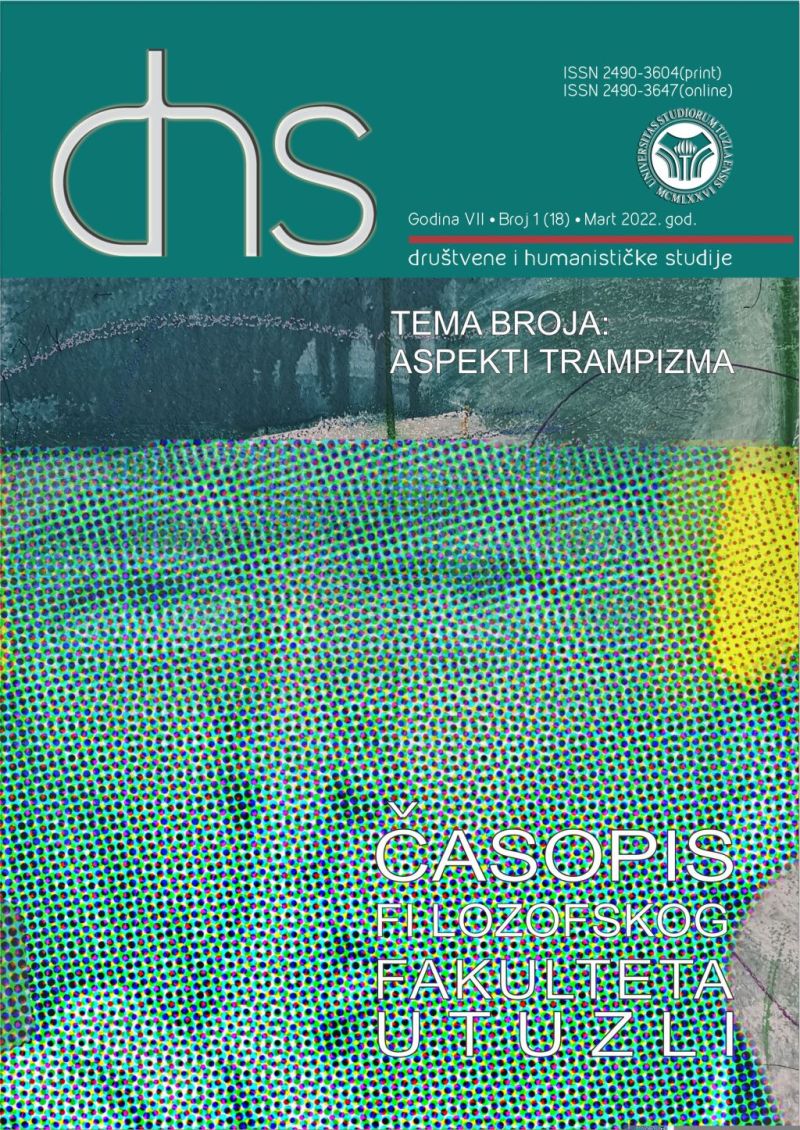Bošnjačke aporije polivalentne sekularnosti: Epifenomen kompromisne modernosti
Bosniak Aporia of Polyvalent Secularity: The Epiphenomenon of Compromising Modernity
Author(s): Muedib ŠahinovićSubject(s): Politics / Political Sciences, Sociology, Sociology of Religion
Published by: Filozofski fakultet Univerziteta u Tuzli
Keywords: secularity; Bosniaks; transformation; fluctuating religiosity; harmonization; compromise; religion; Islamic norms; human rights; religious freedom;
Summary/Abstract: The focal point of this paper stands on the polyvalent nature of secularity which is detected through its various forms and practical application as well as through ideological instrumentalization resulting in extreme derivatives. There is the specific influence of secular ideas and practices on the Bosniak social context, which has been marked during historical development by different phases of the relationship between religion and the state, dating back from the middle of the 20th century consequently leading to highly difficult and complex changes within the Bosniak existence. These changes were primarily aimed at a completely new perception of the notion itself and a considerably decreased application of religious standards. Those standards have been sustained under the pressure of secular moralities hence transformed into the pattern that has transitioned to antidotes briefly described by the phrase "fluctuating religiosity".It was these compromise solutions that enabled the "soft" transformation of Islamic legal norms into religious-moral norms (as a milder and more acceptable form of normative determination). This conversion of the Islamic spirit, practice, and worldviews of Bosniaks retain the amassing consequences on a significant contingent of identity categories. The whole process is being critically assessed through sociological analysis in this paper. Taking into account the Bosniak path through modernity, which begins in the late 19th century; secularization represented a serious Rubicon that needed to be bridged, and within the framework of new understandings of religiosity to build a necessary and adequate frame for the preservation of religious and ethnonational identity. On the example of Bosniak practice which has found a middle ground between nominally irreconcilable secular laws and religious imperatives, a general conclusion can be drawn about the existence of a probable sociological model of harmonization of different antagonisms in the relationship between the state and religion that affirm ideas such as separation with cooperation, overlapping consensus or neutrality with respect, guaranteeing fundamental freedoms and human rights and within them; inter alia, the preservation of religious sovereignty, identity and practice, which opens the door to convergent perspectives in a global context.
Journal: DHS-Društvene i humanističke studije: časopis Filozofskog fakulteta u Tuzli
- Issue Year: XVIII/2022
- Issue No: 18
- Page Range: 283-298
- Page Count: 16
- Language: Bosnian

